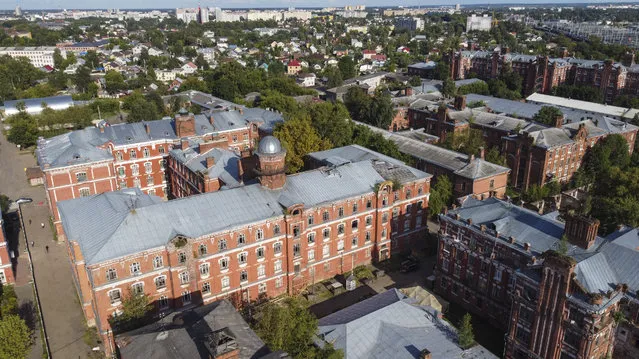
An aerial view of the Proletarka, a complex of red-brick buildings, in the city of Tver, about 200 kilometres (125 miles) northwest of Moscow, on August 8, 2020. The Proletarka was designed as model housing for workers. But a century later, its impoverished residents are living in squalor. Built at the tail-end of the tsarist era, between 1858 and 1913, it was a city within a city, housing some 15,000 workers from a mill making cotton in Tver. After the Soviets seized power in 1917, it was renamed “The Proletarian” and reached its heyday as a self-contained community with shops, a library, a hospital, two swimming pools, a theatre and even an observatory. But like with much of the communal housing that the Soviets set up across Russia, the Proletarka has become much less of a workers' paradise since the 1991 collapse of the USSR. (Photo by Andrey Borodulin/AFP Photo)
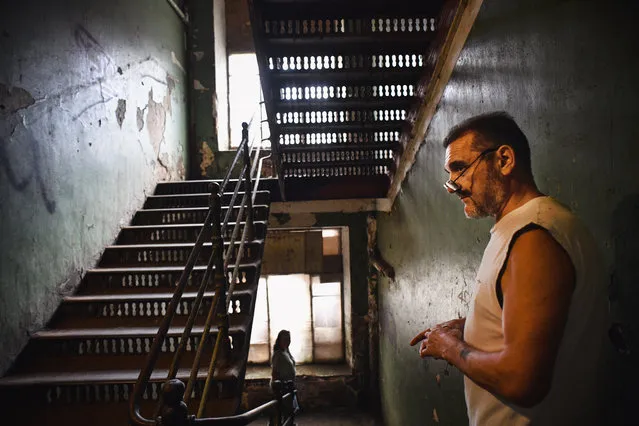
Vladimir Mogilnikov, 62, stands in a stairway in a dormitory for the workers of Proletarka textile factory in the town of Tver, 200 kilometres north-west from Moscow on August 8, 2020. (Photo by Andrey Borodulin/AFP Photo)
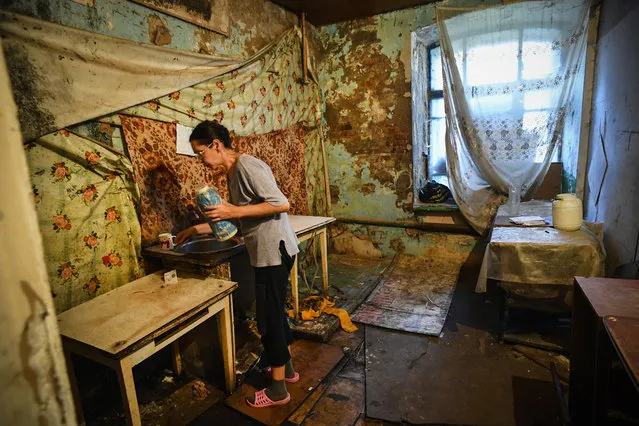
A woman cooks in a communal kitchen in a dormitory for the workers of Proletarka textile factory in the town of Tver, 200 kilometres north-west from Moscow on August 8, 2020. (Photo by Andrey Borodulin/AFP Photo)
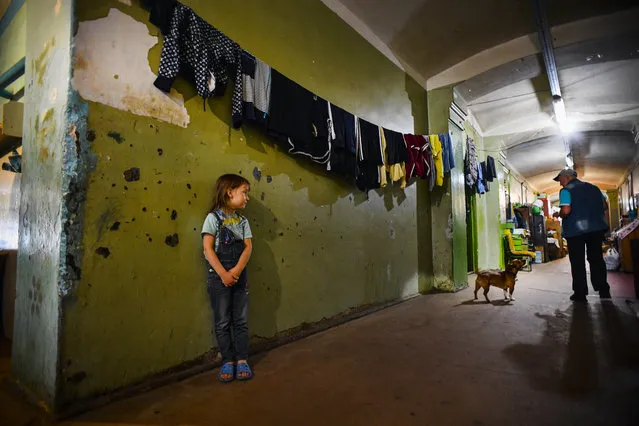
A girl stands in a communal corridor in a dormitory for the workers of Proletarka textile factory in the town of Tver, 200 kilometres north-west from Moscow on August 8, 2020. (Photo by Andrey Borodulin/AFP Photo)
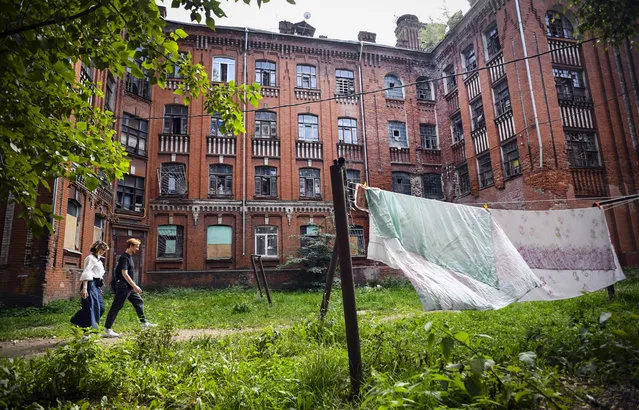
People walk past one of the buildings of a dormitory for the workers of Proletarka textile factory in the town of Tver, 200 kilometres north-west from Moscow on August 8, 2020. (Photo by Andrey Borodulin/AFP Photo)
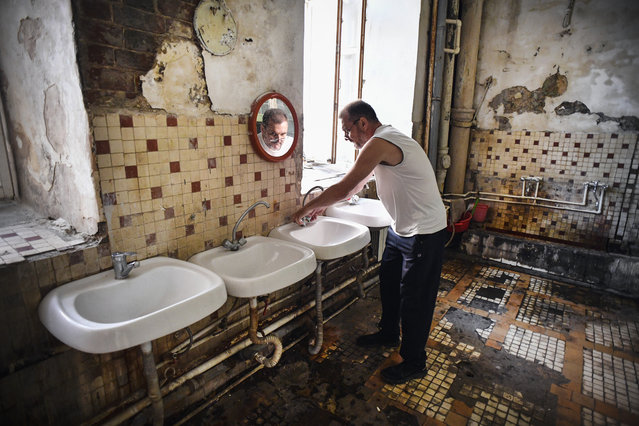
Vladimir Mogilnikov, 62, washes his hands in a communal washing room in a dormitory for the workers of Proletarka textile factory in the town of Tver, 200 kilometres north-west from Moscow on August 8, 2020. (Photo by Andrey Borodulin/AFP Photo)
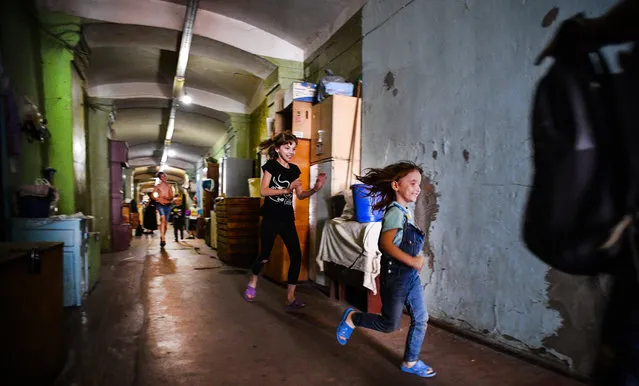
Children play in a communal corridor in a dormitory for the workers of Proletarka textile factory in the town of Tver, 200 kilometres north-west from Moscow on August 8, 2020. (Photo by Andrey Borodulin/AFP Photo)
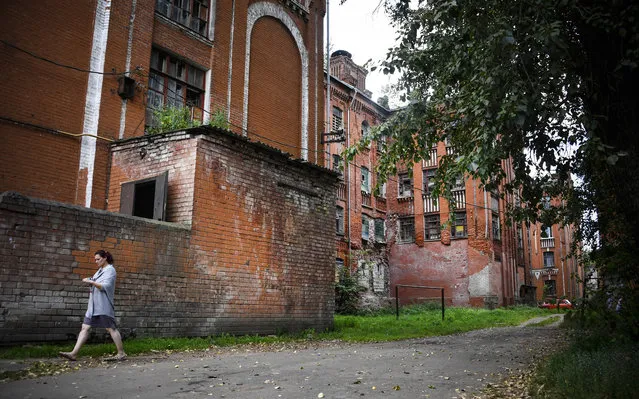
A woman walks past one of the buildings of a dormitory for the workers of Proletarka textile factory in the town of Tver, 200 kilometres north-west from Moscow on August 8, 2020. (Photo by Andrey Borodulin/AFP Photo)
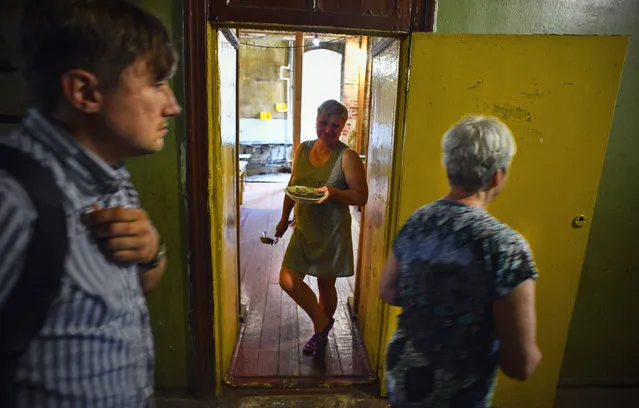
A woman stands at the entrance of a communal kitchen in a dormitory for the workers of Proletarka textile factory in the town of Tver, 200 kilometres north-west from Moscow on August 8, 2020. (Photo by Andrey Borodulin/AFP Photo)
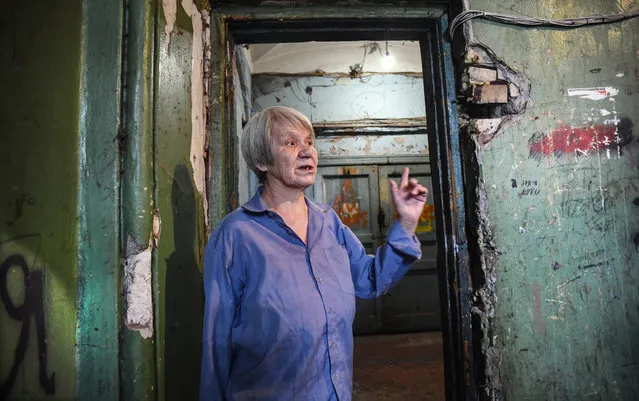
Zinaida Ibragimova, 69, shows a communal corridor in a dormitory for the workers of Proletarka textile factory in the town of Tver, 200 kilometres north-west from Moscow on August 8, 2020. (Photo by Andrey Borodulin/AFP Photo)
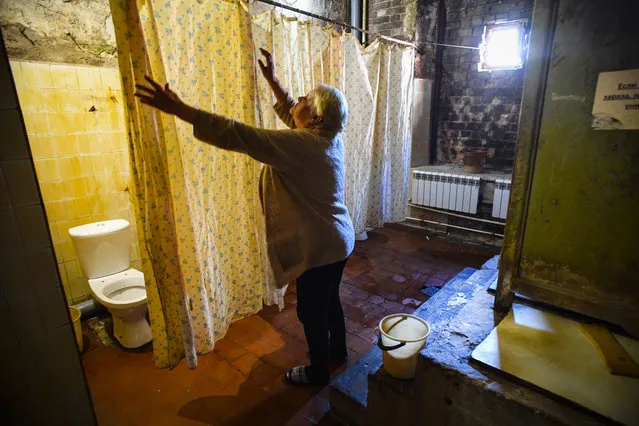
A woman adjusts a curtain in communal toilet in a dormitory for the workers of Proletarka textile factory in the town of Tver, 200 kilometres north-west from Moscow on August 8, 2020. (Photo by Andrey Borodulin/AFP Photo)
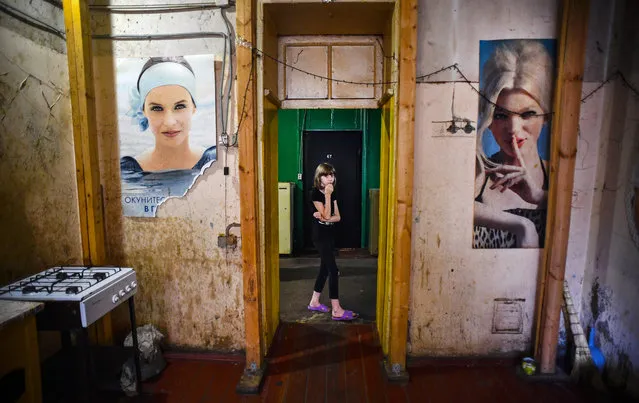
A girl walks past the entrance of a communal kitchen in a dormitory for the workers of Proletarka textile factory in the town of Tver, 200 kilometres north-west from Moscow on August 8, 2020. (Photo by Andrey Borodulin/AFP Photo)
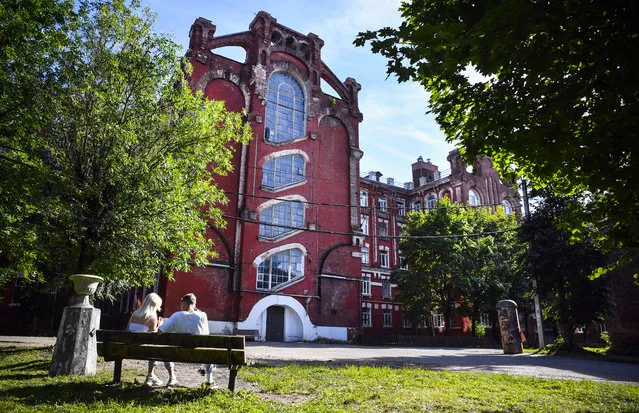
A couple sits on a bench in front of a so-called “Paris” building of a dormitory for the workers of Proletarka textile factory in the town of Tver, 200 kilometres north-west from Moscow on August 8, 2020. (Photo by Andrey Borodulin/AFP Photo)
07 Sep 2020 00:03:00,
post received
0 comments
